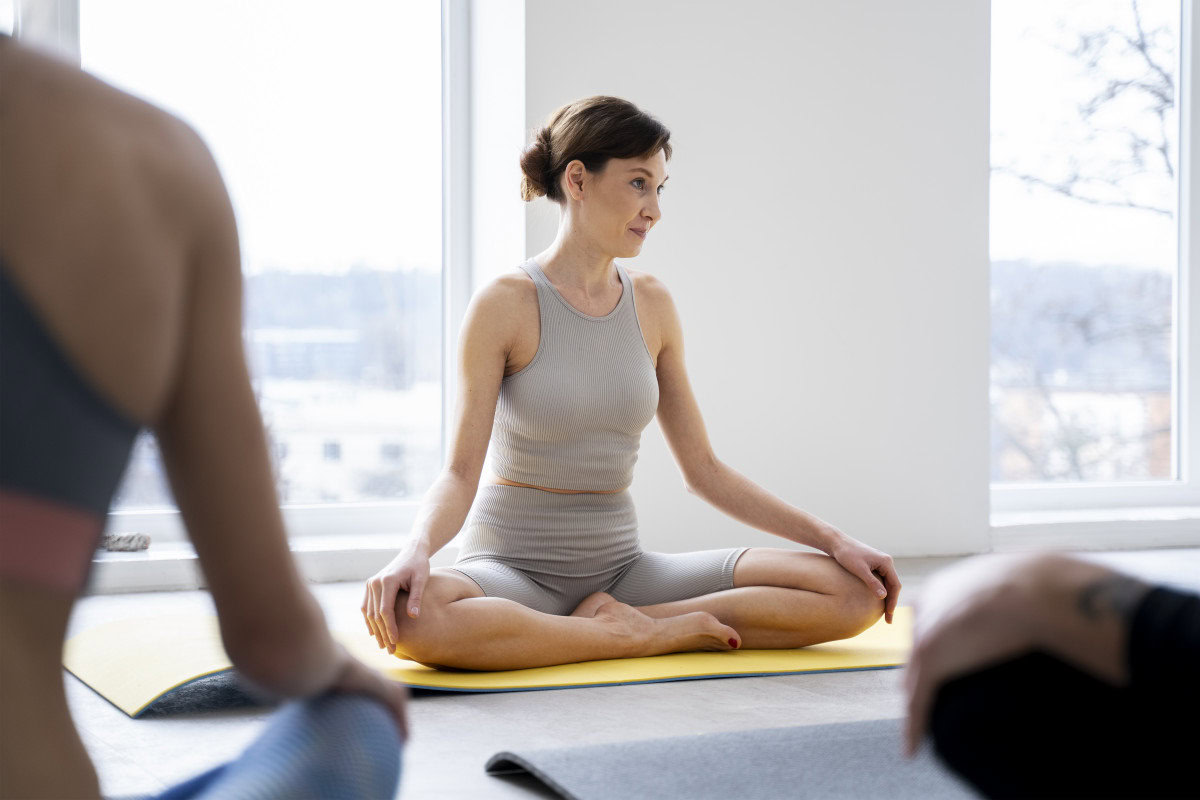Introduction
In today’s fast-paced world, stress and anxiety have become common issues affecting people of all ages. While many turn to medication and therapy for relief, physical exercise, particularly Pilates, offers a holistic approach to managing mental health. This article explores how Pilates can help reduce stress and anxiety, promoting overall mental well-being.
1. Understanding Pilates: Pilates is a low-impact exercise regimen that focuses on core strength, flexibility, and mindful movement. Developed by Joseph Pilates in the early 20th century, it emphasizes controlled breathing, alignment, and concentration, making it an excellent practice for enhancing both physical and mental health.
2. The Connection Between Pilates and Mental Health: Pilates goes beyond physical fitness, offering significant mental health benefits. Here’s how Pilates contributes to reducing stress and anxiety:
- Mind-Body Connection: Pilates encourages a strong connection between the mind and body, fostering awareness and mindfulness. This focus on present-moment awareness helps reduce stress and anxiety by diverting attention from worries and negative thoughts.
- Controlled Breathing: Pilates incorporates deep, controlled breathing techniques, which activate the parasympathetic nervous system, promoting relaxation and reducing the body’s stress response. Deep breathing also helps lower heart rate and blood pressure, contributing to a sense of calm.
- Physical Release: Physical activity, in general, is known to release endorphins, the body’s natural mood enhancers. Pilates, with its emphasis on fluid and controlled movements, provides a gentle yet effective way to release built-up tension and stress.
3. Benefits of Pilates for Stress and Anxiety: Several specific benefits make Pilates an effective practice for managing stress and anxiety:
- Improved Sleep: Regular Pilates practice can improve sleep quality by reducing stress and promoting relaxation. Better sleep is crucial for mental health and helps in managing anxiety levels.
- Enhanced Mood: Pilates can boost mood by increasing the production of serotonin and dopamine, neurotransmitters that play a role in happiness and well-being.
- Reduced Muscle Tension: Stress often leads to muscle tension, particularly in the neck, shoulders, and back. Pilates exercises target these areas, helping to release tension and alleviate discomfort.
- Increased Focus and Concentration: Pilates requires concentration and precision, which can improve mental clarity and focus. This mental discipline can carry over into daily life, helping to manage stress more effectively.
4. Key Pilates Exercises for Stress and Anxiety Relief: Incorporate these Pilates exercises into your routine to help reduce stress and anxiety:
- The Hundred: This classic Pilates exercise focuses on deep, rhythmic breathing and core strength, helping to calm the mind and body.
- Spine Stretch Forward: This exercise promotes spinal flexibility and releases tension in the back, providing a soothing effect.
- Leg Circles: Gentle leg circles can help improve hip flexibility and reduce tension in the lower body.
- Child’s Pose: This restorative pose encourages relaxation and deep breathing, helping to alleviate stress.
5. Creating a Mindful Pilates Practice: To maximize the mental health benefits of Pilates, consider the following tips:
- Set Intentions: Begin each session with a clear intention, focusing on what you want to achieve mentally and physically.
- Practice Regularly: Consistency is key. Aim to practice Pilates at least 2-3 times per week to maintain its mental health benefits.
- Combine with Meditation: Enhance your Pilates practice by incorporating meditation or mindfulness exercises before or after your workout.
- Stay Present: Focus on each movement and breath during your practice. Staying present helps keep anxiety at bay and enhances the mind-body connection.
Conclusion
Pilates offers a comprehensive approach to managing stress and anxiety, combining physical exercise with mindfulness and controlled breathing. By integrating Pilates into your routine, you can improve your mental health, reduce stress, and enhance overall well-being. Embrace Pilates as a tool for both physical fitness and mental tranquility, and experience the transformative benefits it brings to your life.
Discover more from Pilates All Ages
Subscribe to get the latest posts sent to your email.
